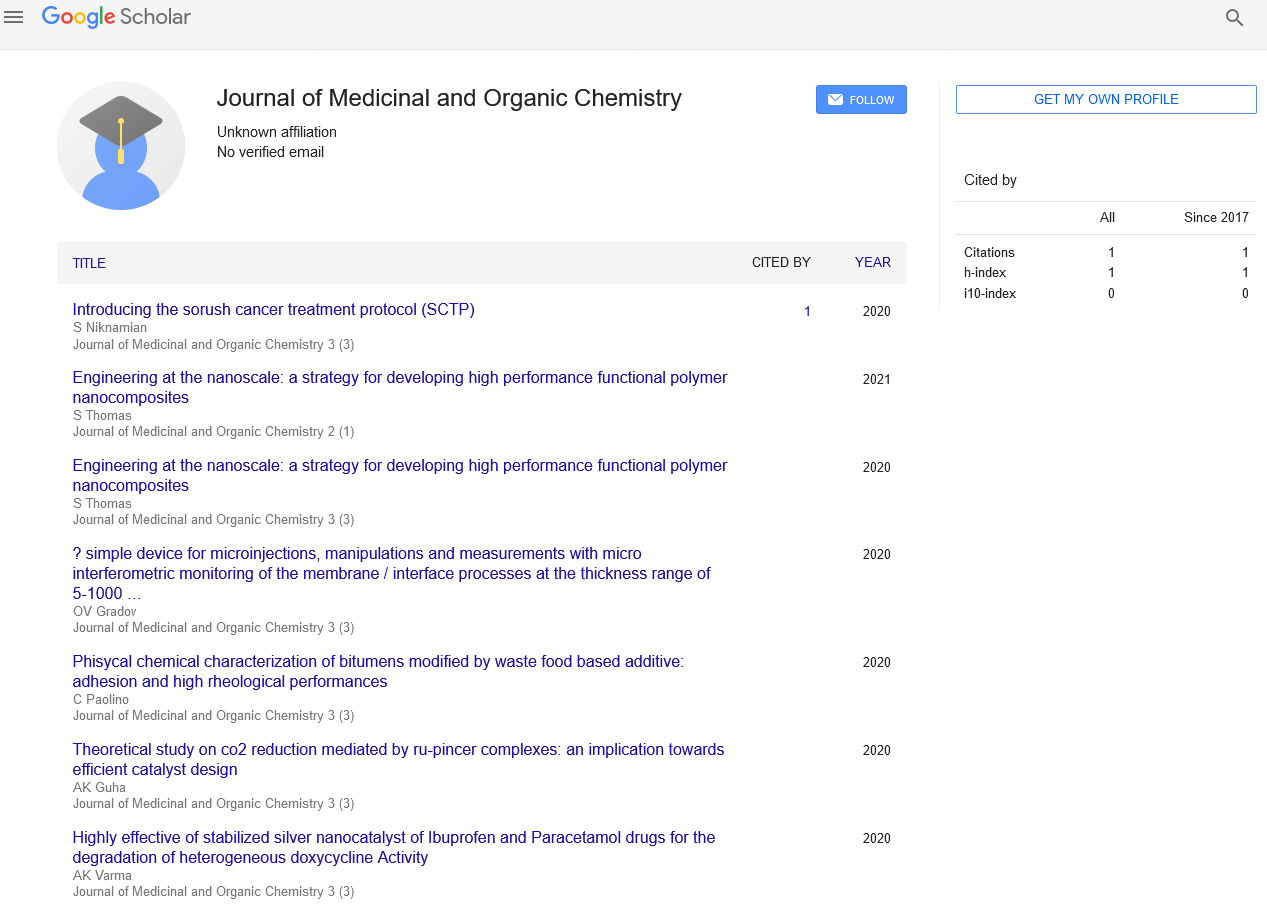Perspective - Journal of Medicinal and Organic Chemistry (2023) Volume 6, Issue 6
Navigating the Waves of Health: The Profound Impact of Epidemiology
- Corresponding Author:
- Shigeo Kosu
Department of Biological Science,
Dssawo University,
Tokyo,
Japan
E-mail: shigeo.kosu@riken.jp
Received: 15-Nov-2023, Manuscript No. jmoc-23-121594; Editor assigned: 21-Nov-2023, PreQC No. jmoc-23-121594 (PQ); Reviewed: 06-Dec-2023, QC No. jmoc-23-121594; Revised: 13- Dec-2023, Manuscript No. jmoc-23-121594 (R); Published: 29- Dec-2023, DOI: 10.37532/jmoc.2023.6(6).155-156
Introduction
In the realm of public health, epidemiology emerges as a guiding compass, charting the course through the intricate landscapes of disease patterns, determinants and interventions. The science of epidemiology is a dynamic field that investigates the distribution and determinants of healthrelated events in populations, unveiling crucial insights that underpin the development of effective health policies and interventions. This article explores the profound impact of epidemiology, from its foundational principles to its pivotal role in addressing global health challenges.
Description
Defining epidemiology
Epidemiology, often described as the cornerstone of public health, is the study of the distribution and determinants of diseases and health-related events in populations. By examining patterns of disease occurrence, epidemiologists aim to identify risk factors, understand the mechanisms of disease transmission and inform strategies for prevention and control.
Descriptive epidemiology: This facet involves characterizing the distribution of diseases, examining factors such as time, place and person. Descriptive epidemiology lays the groundwork for identifying patterns and trends in health-related events.
Analytical epidemiology: This aspect delves into the determinants of health events, exploring the relationships between exposures and outcomes. Analytical epidemiology enables researchers to assess causality and develop interventions based on scientific evidence.
The foundations of epidemiology
John snow and the broad street pump: The iconic case of John Snow’s investigation into the 1854 cholera outbreak in London exemplifies the essence of epidemiology. By mapping cases and identifying the source of contamination to a specific water pump on broad street, snow laid the groundwork for modern epidemiological methods.
The framingham heart study: Launched in 1948, the Framingham heart study has been instrumental in uncovering risk factors for cardiovascular diseases. This longitudinal study pioneered the concept of risk factors, shaping our understanding of how lifestyle and genetics contribute to heart health.
Epidemiology in disease surveillance
Infectious disease outbreaks: Epidemiology plays a crucial role in the early detection and management of infectious disease outbreaks. Rapid identification of the source, mode of transmission and vulnerable populations is essential for implementing effective control measures.
Chronic disease burden: As the global burden of chronic diseases rises, epidemiology is indispensable in unraveling the complex web of factors contributing to conditions such as diabetes, cancer and cardiovascular diseases. This knowledge informs prevention strategies and healthcare planning.
Epidemiology and global health challenges
Pandemic preparedness: The COVID-19 pandemic underscored the vital role of epidemiology in global health security. Epidemiologists worked tirelessly to track the spread of the virus, analyze its impact and guide public health responses, emphasizing the need for robust pandemic preparedness.
Tackling Non-Communicable Diseases (NCDs): Epidemiology contributes significantly to understanding and addressing the rise of non-communicable diseases worldwide. By identifying risk factors and vulnerable populations, epidemiologists guide interventions to reduce the burden of NCDs.
Methodological advancements
Advances in data analysis: The advent of big data and sophisticated analytical techniques has revolutionized epidemiological research. Researchers can now analyze vast datasets to uncover patterns and associations, providing a more nuanced understanding of health-related events.
Genetic epidemiology: The integration of genetic information into epidemiological studies has opened new avenues for understanding the role of genetics in disease susceptibility. Genetic epidemiology explores the interplay between genetic and environmental factors in disease development.
Challenges and opportunities
Data quality and availability: Ensuring the quality and availability of data remains a persistent challenge in epidemiology. Addressing gaps in data collection and standardizing methodologies are crucial for enhancing the reliability of epidemiological studies.
Global health inequities: Epidemiology shines a spotlight on health inequities, but addressing these disparities requires a comprehensive and collaborative approach. Societal and structural factors influencing health outcomes must be considered to develop effective interventions.
The future of epidemiology
Precision epidemiology: The concept of precision medicine extends to epidemiology, with researchers aiming to tailor interventions based on individual and population-specific characteristics. Precision epidemiology holds the potential to optimize health strategies for diverse populations.
One health approach: As the interconnectedness of human, animal and environmental health becomes more apparent, the one health approach integrates epidemiology across species and ecosystems. This holistic perspective is essential for addressing emerging infectious diseases and other health challenges.
Conclusion
Epidemiology, a discipline that unearths the patterns and determinants of health-related events, stands as a linchpin in the pursuit of global well-being. From historic breakthroughs to contemporary challenges, epidemiology continues to evolve, guided by technological advancements, methodological innovations and a steadfast commitment to public health. As we navigate the complexities of emerging health threats and strive for health equity, epidemiology remains a beacon of evidence-based understanding a field that empowers societies to make informed decisions and shape a healthier, more resilient future.

